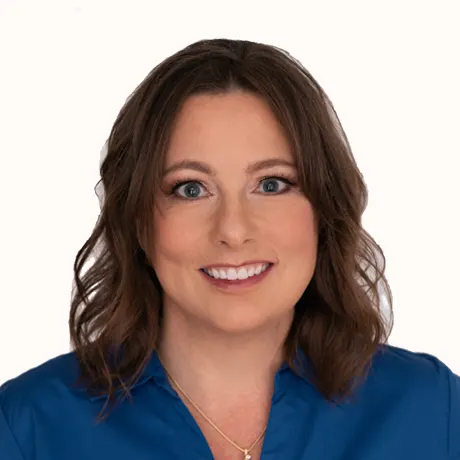Research Roundup: New Findings on ADHD, Dyslexia, and Dyscalculia
October is a big month at Understood. It’s ADHD Awareness Month, Dyslexia Awareness Month, and Learning Disabilities Awareness Month. As part of these awareness campaigns, we asked Understood experts to highlight important studies that have been published in the last year. Here’s what families and educators need to know.
1. ADHD and Teen Drivers
Summary: A Pediatrics study found that new teen drivers with ADHD are far more likely to get into a car accident than those without ADHD. The risk was higher regardless of how old teens with ADHD were when they got their license. Teens with ADHD also had a much higher rate of crashes involving alcohol.
Key takeaway: “This study shows one of the ways ADHD can impact a child’s safety and decision-making,” says Elizabeth Harstad, MD, a developmental-behavioral pediatrician. “We often focus so much on school functioning. But to fully support kids with ADHD, we must support all areas of functioning.”
Common misunderstanding: “Instead of thinking about this as just a scary finding, it can be used to help improve decision-making skills and keep kids safe,” says Harstad.
Keep reading: Get tips on how to teach safe driving skills to teens with ADHD.
2. Dyslexia and Time Spent Reading at Home
Summary: A large study of twins in the Journal of Child Psychology and Psychiatry looked at how much time kids choose to spend reading. It found that genes and environment are equally important when it comes to time spent reading at home.
Key takeaway: “We’ve known for a while that genes play a big role in dyslexia,” says Daniel Ansari, PhD, a brain researcher who studies child development. “But this new study shows that kids’ reading ability directly influences how much print exposure they get.”
Common misunderstanding: “Reading to your child is important,” says Ansari. “But it is not the main factor in determining how much kids read. A lot of how much children read and get read to at home to is driven by their reading ability. This makes it all the more important for kids with dyslexia to get the right kind of teaching and support at school.”
Keep reading: Learn about dyslexia and genetics. And get an inside look at a reading intervention for kids with dyslexia.
3. Dyscalculia Diagnosis and Treatment
Summary: A review of dyscalculia studies includes new guidelines on how to diagnose and treat the math disorder. The study was published in a German medical journal. But it’s available in English.
Key takeaway: “The study underscored the importance of early detection,” says Nelson Dorta, PhD, a pediatric neuropsychologist. “It also found that treatment was most effective in one-on-one sessions that lasted at least 45 minutes.”
Common misunderstanding: “Dyscalculia often co-occurs with ADHD and other conditions,” says Dorta. “Each one needs to be treated specifically.”
Keep reading: Learn about treatment options for dyscalculia.
4. ADHD, Depression, and Puberty
Summary: A study in the Journal of Clinical Psychiatry looked at depression symptoms in kids with ADHD. It found an increased rate of depression when preteens with ADHD are going through puberty.
Key takeaway: “The higher rates were found particularly in girls with ADHD who go through puberty early and in boys with ADHD who go through it later,” says mental health expert Stephanie Sarkis, PhD.

is an author, mental health counselor, and Florida Supreme Court certified family and circuit mediator. She specializes in anxiety, gaslighting, narcissistic abuse, and ADHD.
Stephanie Moulton Sarkis is a psychotherapist specializing in anxiety, gaslighting, narcissistic abuse, and ADHD. She’s the author of eight books and one workbook, including Healing From Toxic Relationships: 10 Essential Steps to Recover from Gaslighting, Narcissism, and Emotional Abuse and Gaslighting: Recognize Manipulative and Emotionally Abusive People — and Break Free.
She is a national certified counselor, a licensed mental health counselor, and a Florida Supreme Court certified family and circuit mediator. She is also a diplomate of the American Mental Health Counselors Association and a clinical mental health specialist in child and adolescent counseling. Additionally, she is a senior contributor for Forbes online, a contributor to Psychology Today, and the host of the Talking Brains podcast.
Publications, media, and appearances
Parenting a child with ADHD: Being more ADHD-friendly (Understood, 2018)
How we deal with: “Is ADHD real?” (Understood, In It podcast)
Common misunderstanding: “Puberty is a confusing time for families and preteens,” says Sarkis. “There can be some expected changes in mood. But depression is a serious issue and needs to be addressed as soon as possible. It is not something preteens or teens ‘outgrow.’”
Keep reading: Learn more about ADHD and depression.
5. The Achievement Gap Between Kids With and Without IEPs
Summary: An analysis of 23 studies of the “achievement gap” in reading found that students with IEPs performed 1.17 standard deviations (or more than three years) below students without IEPs.
Key takeaway: “With a gap this big, students with IEPs aren’t really being provided meaningful ‘access’ to the general education curriculum,” says Donald Deshler, PhD, an expert on special education. “These findings should make families and educators ask if students are receiving the right interventions.”
Common misunderstanding: “Some people may think that since these students have disabilities, it’s understandable there’s a gap between their performance and that of their peers,” says Deshler. “But there is clear evidence that students with learning disabilities can reduce the size of the achievement gap when they receive systematic, intensive, individualized instruction.”
Keep reading: Learn more about setting IEP goals that are tied to grade-level standards.
Any opinions, views, information, and other content contained in blogs on Understood.org are the sole responsibility of the writer of the blog, and do not necessarily reflect the views, values, opinions, or beliefs of, and are not endorsed by, Understood.
